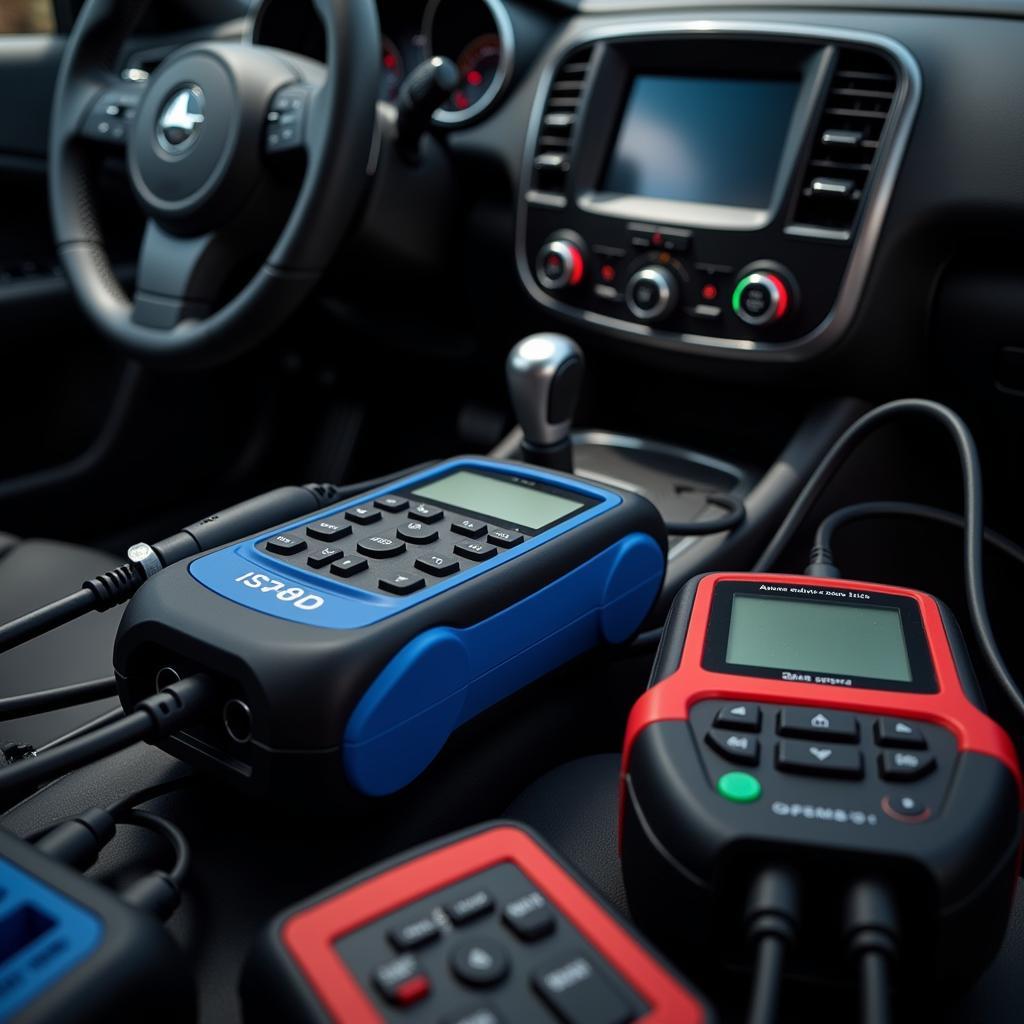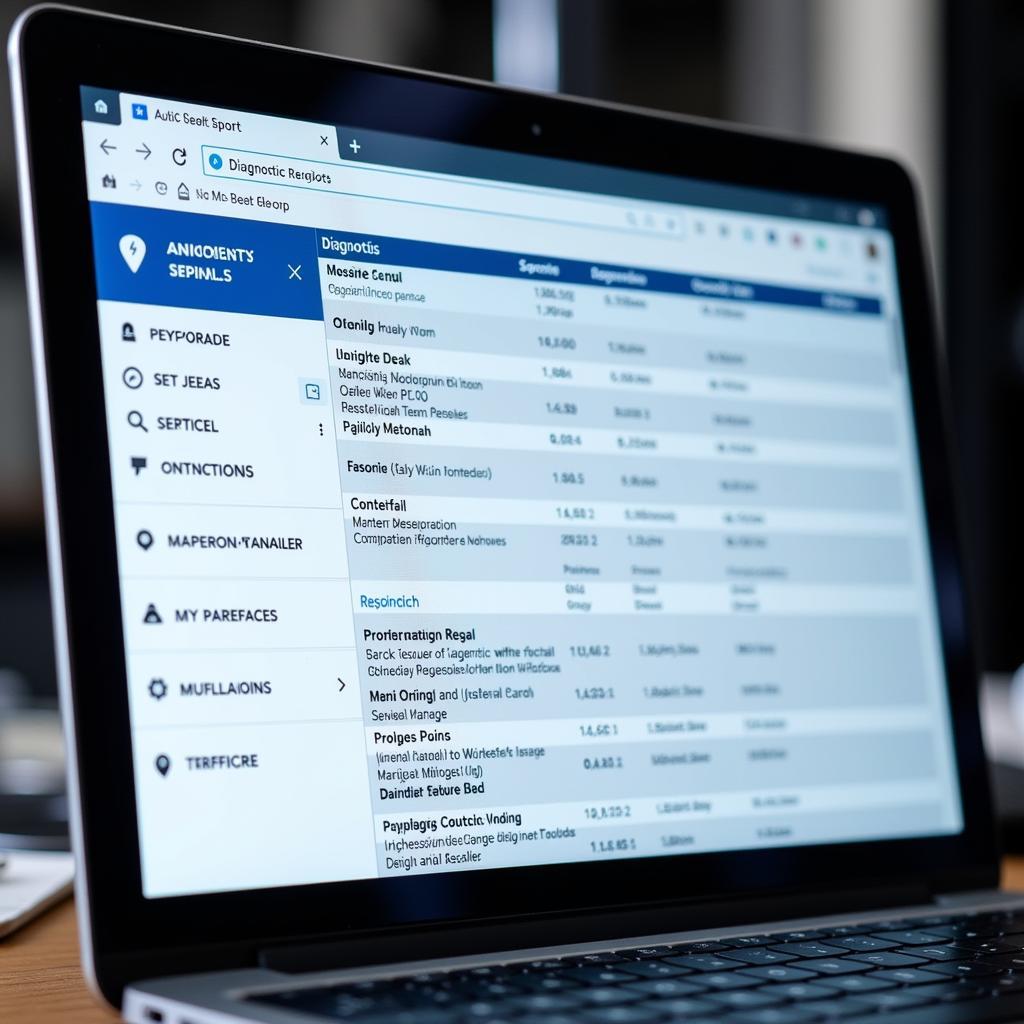Diagnostic car, or more commonly, car diagnostics, refers to the process of using specialized equipment to assess the current operating status of a vehicle’s various systems. Think of it as a medical check-up, but for your car. This process unveils any underlying issues or potential problems that may not be immediately noticeable.
 Car diagnostic tools
Car diagnostic tools
Decoding the Language of Your Car: Why Car Diagnostics Matter
Modern vehicles are equipped with complex computer systems known as Electronic Control Units (ECUs). These ECUs monitor and control a wide range of functions, from engine performance to airbag deployment. When a problem arises, the ECU generates Diagnostic Trouble Codes (DTCs), which are essentially error codes stored within the vehicle’s computer system. Car diagnostics tools tap into these ECUs, retrieve these codes, and translate them into understandable language for mechanics and vehicle owners.
Unveiling the Benefits: What Car Diagnostics Can Do for You
Car diagnostics offer a range of benefits for car owners, including:
- Early Problem Detection: Identifying issues early on can prevent costly repairs down the line.
- Accurate Diagnosis: Eliminating guesswork, car diagnostics pinpoint the exact cause of a problem, saving time and money on unnecessary repairs.
- Improved Performance: By identifying and addressing underlying issues, car diagnostics can optimize engine performance and fuel efficiency.
- Increased Safety: Diagnosing problems related to brakes, airbags, and other safety systems ensures the vehicle is safe to drive.
- Enhanced Resale Value: A well-maintained vehicle with a clean diagnostic report holds higher resale value.
Types of Car Diagnostics: Delving Deeper
There are primarily two types of car diagnostics:
- On-Board Diagnostics (OBD-II): This standardized system, mandatory in vehicles manufactured after 1996, allows access to a vehicle’s emission control system, engine data, and other crucial information.
- Off-Board Diagnostics: This involves more specialized equipment and software to delve deeper into specific vehicle systems for advanced troubleshooting.
The Diagnostic Process: What to Expect
A typical car diagnostic session involves the following steps:
- Connecting the Diagnostic Tool: A mechanic will connect a diagnostic scanner to the vehicle’s OBD-II port, usually located under the dashboard.
- Retrieving DTCs: The scanner retrieves stored DTCs from the vehicle’s ECUs.
- Analyzing the Codes: The mechanic interprets the codes to understand the nature and severity of the problem.
- Further Inspection: Additional tests and inspections might be performed to confirm the diagnosis and identify the root cause.
- Repairing the Issue: Once the problem is identified, the mechanic will discuss repair options and costs with the vehicle owner.
DIY vs. Professional Diagnostics: Making the Right Choice
While affordable DIY car diagnostic tools are available, they often provide limited information compared to professional-grade equipment. Consulting a qualified mechanic with advanced diagnostic tools ensures comprehensive analysis and accurate interpretation of the data.
 Car diagnostic report
Car diagnostic report
The Future of Car Diagnostics: Embracing Technology
Car diagnostics are constantly evolving with advancements in technology. From remote diagnostics to predictive maintenance, the future holds exciting possibilities for enhancing vehicle performance, reliability, and safety.
Conclusion: Prioritizing Your Car’s Health
Understanding the meaning of car diagnostics empowers car owners to take proactive measures in maintaining their vehicles. By embracing this technology, you can ensure your car remains in optimal condition, delivering a safe and enjoyable driving experience for years to come.
FAQs
1. How often should I get my car diagnosed?
It’s generally recommended to have your car diagnosed annually or whenever you experience unusual performance issues.
2. Can I diagnose my car myself?
While basic DIY tools are available, consulting a qualified mechanic with professional equipment is recommended for accurate diagnosis and interpretation.
3. What is the difference between OBD-I and OBD-II?
OBD-II, mandatory in vehicles manufactured after 1996, offers a standardized system and more comprehensive data access compared to its predecessor, OBD-I.
4. How much does car diagnostics cost?
The cost of car diagnostics can vary depending on the complexity of the issue and the hourly rates of the mechanic.
5. Can car diagnostics detect problems with the transmission?
Yes, car diagnostics can detect issues with the transmission system by accessing and analyzing data from the Transmission Control Module (TCM).
Need further assistance?
Contact our team of car diagnostic experts 24/7 via WhatsApp: +1(641)206-8880, Email: [email protected]. We’re here to help you keep your vehicle running smoothly.

Leave a Reply